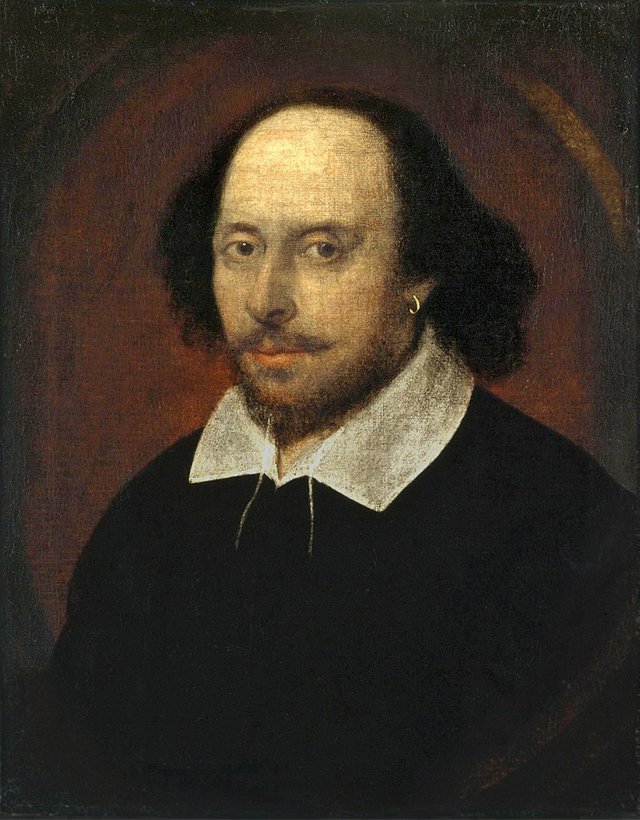Later years and death (William Shakespeare)
Rowe was the first biographer to record the tradition, repeated by Johnson, that Shakespeare retired to Stratford "some years before his death".[51][52] He was still working as an actor in London in 1608; in an answer to the sharers' petition in 1635, Cuthbert Burbage stated that after purchasing the lease of the Blackfriars Theatre in 1608 from Henry Evans, the King's Men "placed men players" there, "which were Heminges, Condell, Shakespeare, etc.".[53] However, it is perhaps relevant that the bubonic plague raged in London throughout 1609.[54][55] The London public playhouses were repeatedly closed during extended outbreaks of the plague (a total of over 60 months closure between May 1603 and February 1610),[56] which meant there was often no acting work. Retirement from all work was uncommon at that time.[57] Shakespeare continued to visit London during the years 1611–1614.[51] In 1612, he was called as a witness in Bellott v. Mountjoy, a court case concerning the marriage settlement of Mountjoy's daughter, Mary.[58] In March 1613, he bought a gatehouse in the former Blackfriars priory;[59] and from November 1614, he was in London for several weeks with his son-in-law, John Hall.[60] After 1610, Shakespeare wrote fewer plays, and none is attributed to him after 1613.[61] His last three plays were collaborations, probably with John Fletcher,[62] who succeeded him as the house playwright of the King's Men.[63]
